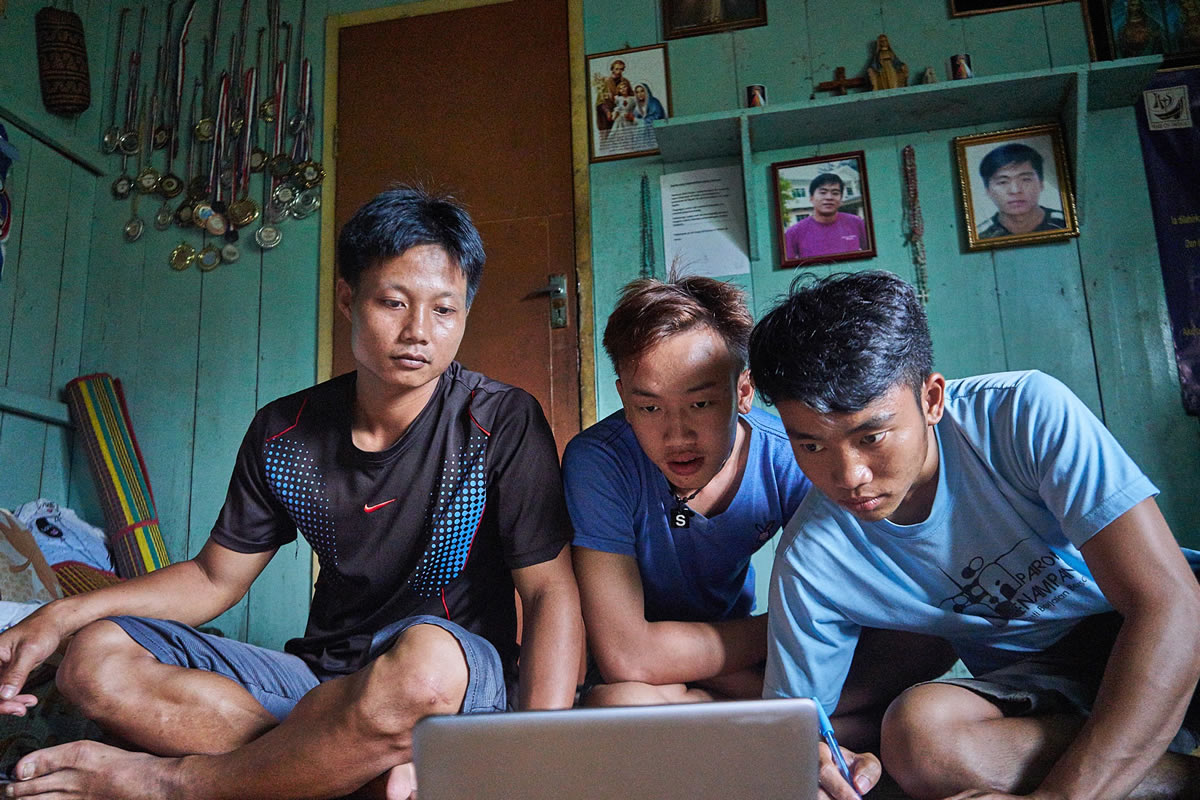
Energy Action Partners is harnessing the universal allure of games to engage developing country communities in the process of planning and designing sustainable energy projects. Minigrids (microgrids) that provide energy access in remote settlements can be a great investment, lifting people out of poverty by enabling economic development and creating pathways to a better quality of life. But, too often, international aid agencies and other well-meaning developers finance projects to improve energy access without adequately engaging the communities that the projects are designed for.
The pitfalls of minigrids designed without community Input
The result can be physical shortcomings, such as expensive equipment that fails or falls into disuse before its technical life expectancy is reached, or systems that aren’t correctly sized and don’t adequately meet community energy requirements. Bypassing the important process of community engagement in energy development projects also creates social challenges including potential conflicts over pricing or coordinating the allocation of local resources. Poorly planned systems can fail to support economic development goals if there isn’t enough energy to power the machinery or activities required by new businesses. Then there are issues that can jeopardize the ongoing performance of the system including tariffs that are too low to support maintenance and repairs, lack of training, and lack of community buy-in, which leads to energy theft, underpayment or simply disengagement.
Engagement enables greater trust and active participation
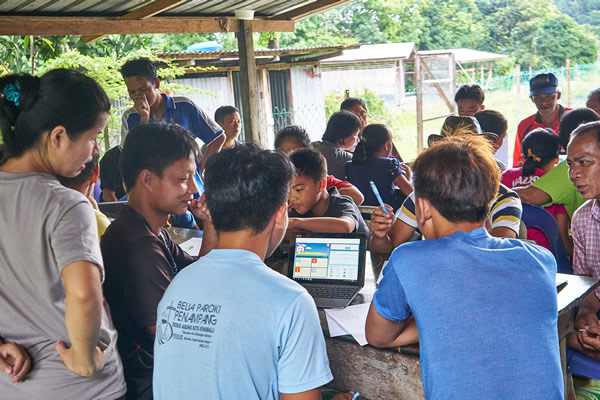
By contrast, a community where people are psychologically engaged in managing an energy system develops a sense of pride and ownership that results in better outcomes for everyone. Scott Kennedy, Executive Director of Energy Action Partners says that when communities lead the design of their own minigrids, there are three important benefits:
- Community input from a diverse audience (women and men, old and young) results in a better system design
- Greater transparency contributes to a sense of ownership and improves collaboration, reducing energy theft. People are more motivated to care for their own systems.
- When communities mobilize around energy systems and build institutions to manage them, it makes the community more resilient to future challenges.
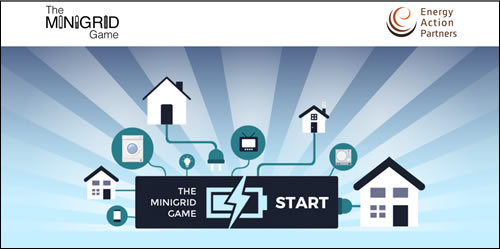
Armed with these convictions, Energy Action Partners designed the Minigrid Game to educate remote, developing country communities about energy and motivate them to get involved in the design and management of their own systems. The game accomplishes that objective through role playing, walking people through the process of collaborating to design a hybrid renewable minigrid that supplies enough energy for the community and remains financially viable into the future.
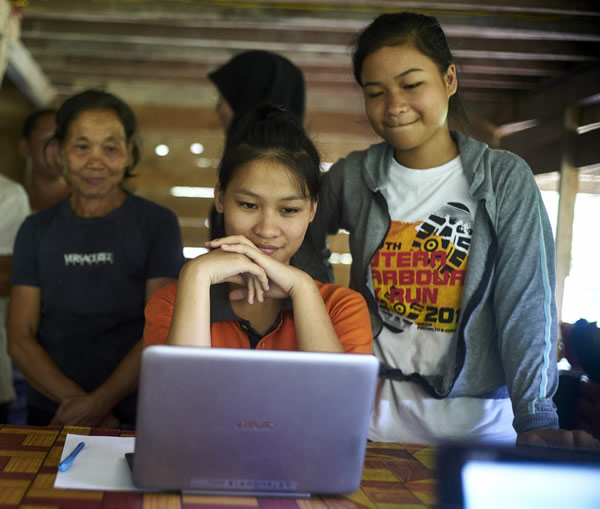
Kennedy says that in the game, networked players – including people of all ages and skillsets – learn about household energy consumption and energy costs by purchasing appliances, setting energy tariffs, and managing finances to pay their bills on time. They also learn about community-level decisions such as system sizing and pricing. When a player switches an appliance on or off in the game, or fails to make a payment, that behavior is immediately visible to everyone else. So players begin to learn how to collaborate around energy decisions, and when that’s necessary.
Microgrid developers and local residents can use the game to explore specific challenges for that community and come away with clear action plans. Key takeaways include:
- Future electricity demand and its dependency on energy efficiency, tariff design and willingness to pay.
- Tradeoffs between system size, reliability and pricing. Is it worth paying more for complete reliability?
- Load management options such as demand response or load shedding. Is the community willing to take on load management – an alternative to building bigger systems – in order to save money?
- Future uses of electricity. What will the impact of new businesses be on microgrid capacity and availability of power?
Kennedy and his colleague Ayu Abdullah, Regional Director of Southeast Asia, have tested the Minigrid Game in four communities in the Sabah region of Malaysia, a mountainous area in the eastern part of the country. While Malaysia is a fast-growing industrial market economy with 90% electrification, energy access is still a critical issue in this area where many remote villages lack power. They have also tested it in a small fishing village on Pyinsalu Island in Myanmar. Kennedy says that there, people were excited about the prospect of using their new electricity system for rice cookers and tea kettles, but that after playing the Minigrid Game they soon came to understand the tradeoffs between the use of cooking appliances and the cost of such energy-intensive devices. In general, he says, a microgrid with equivalent reliability to a strong centralized grid and with power available 24/7 is often prohibitively expensive. In that case, the Minigrid Game can help community members explore different scenarios of power availability and come to a consensus on what they can afford. Kennedy has found that simply involving community members in this decision-making process and providing them an opportunity to voice their preferences can lead to greater acceptance and more economically viable minigrids.
Kennedy stresses that Energy Action Partners has also learned how important it is to partner with other non-profit and community-based organizations when designing future energy systems in remote communities. It’s not just about the energy infrastructure, because new technology can be a double-edged sword. “Technology is a multiplier – it can accelerate any sort of impact, even negative or unintended consequences. For instance, when electricity arrives in a new community, income disparity may become accentuated, potentially leading to social conflict. You have to look broadly at how technology will influence peoples’ lives. Which is precisely why outsiders should not make these decisions unilaterally for the community.”
For Energy Action Partners, providing energy access is really about furthering a broader vision of helping resilient communities to evolve, and become places where modernization actually supports inclusion, social cohesion and shared values.
Energy Action Partners is also working to provide energy access in Somaliland, where energy is extraordinarily expensive. Mainly reliant on diesel generation, electricity in Somaliland can cost between .50 and $1.00 per kWh and the people are frustrated, says Kennedy. They want more energy independence, and are turning to minigrids as a solution.
Learn more about Energy Action Partners.
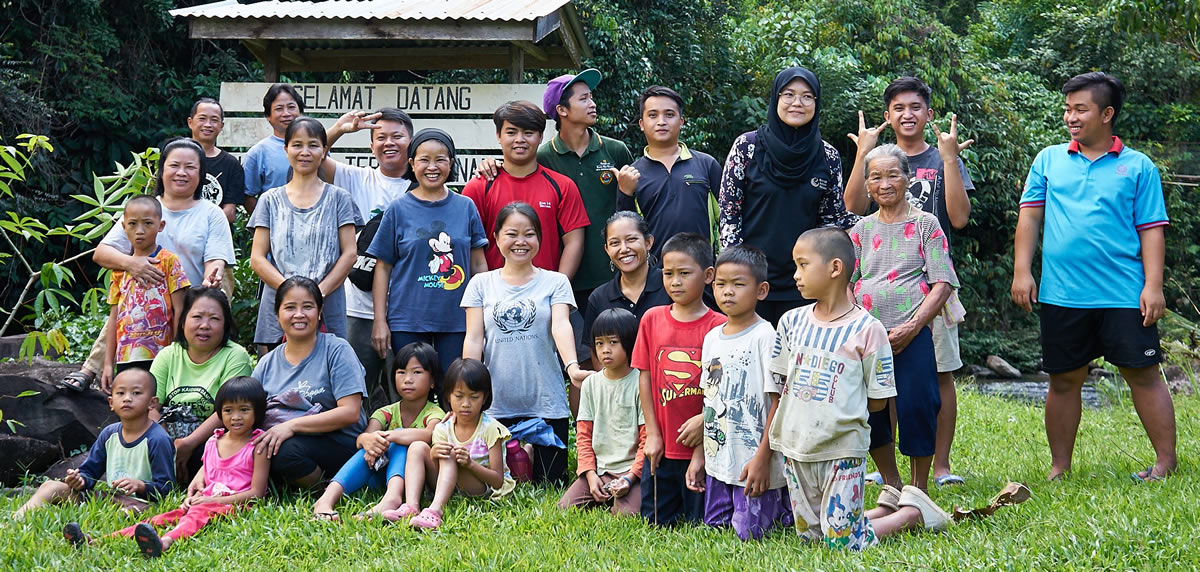

wao..thsi is really impressive. Its haard to imagine how do you tried and get that communites with low income and obvoiusly low education levels, understand such a technical knowledges. Would be have to have a chat with you guys. I already was in some of your webinars. thanks…